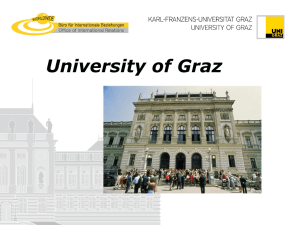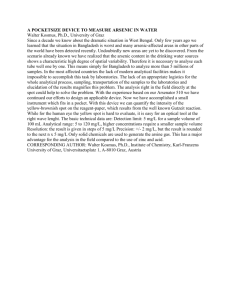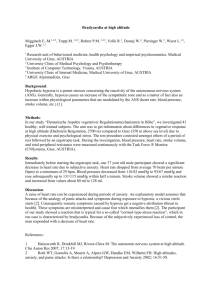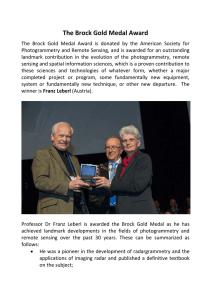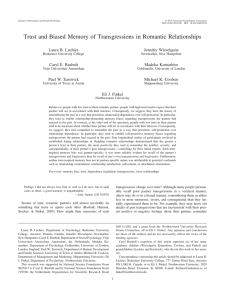TRANSFORMATION, TRANSGRESSIONS, AND TRUST IN EUROPE AND THE AMERICAS
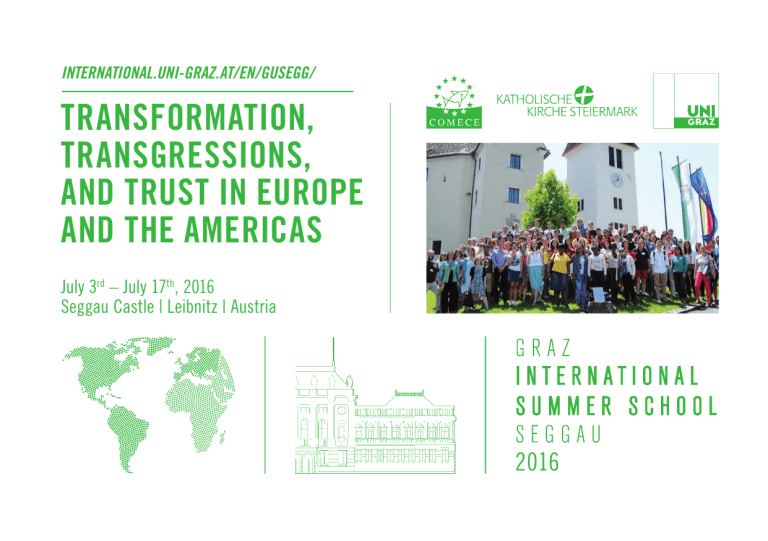
InternatIonal.unI-graz.at/en/gusegg/
TRANSFORMATION,
TRANSGRESSIONS,
AND TRUST IN EUROPE
AND THE AMERICAS
July 3
rd
– July 17
th
, 2016
Seggau Castle | Leibnitz | Austria
2016
TOPIC
TransformaTion, Transgressions, and TrusT in europe and america
The only consistency of today‘s world is change, often in many directions, unpredictable and triggered by self-determination on different levels, political and natural events, cultural reassessment as well as global affairs. Individuals, states, and regions are constantly engaged in transformation processes. Societies are thus permanently changing. While some countries undergo complex transformations towards more democratic and participatory forms of government, others have to re-adjust their political and social models to cope with new challenges. Demographic change in Western Europe and Northern America, the need for young and well educated immigration and a re-thinking of societal coherence in times of diversity have become key policy issues and social, cultural and political challenges of our times. Nationbuilding and ever-deeper forms of economic and political integration retrace and dilute borders with immense impact. Globalization reflects a broader more idiosyncratic process of economic development. At the household level, this transformation affects the individuals’ choices in human capital investment and reproductive decisions. Europe and Northern America are faced with unprecedented demographic changes.
Social change and fundamental transformation processes are mostly achieved through transgressions of existing rules and the status-quo.
Such processes often lead to more inclusive and democratic societies, as was the case when transgressions resulted in the abolition of slavery, or the acceptance of human rights and inclusion of disenfranchised groups. Thus, societal norms were reframed from illegal to legal, from inacceptable to acceptable. Trust plays a very important role in terms of how and whether we accept social change as a challenge or a threat. Depending on our level of confidence, transformation processes will be accepted as inevitable, or strongly opposed as a threat of the status quo. Today, Europe and America can be seen as facing a crisis of trust on individual and collective levels.
The summer school will offer the possibility of examining the current debate on transformation, transgressions, and trust in Europe and
America by focusing on the current challenges to established forms of government, welfare policies and modes of participation in a radically changed global world, where migration and transnationalism play an important role. Focusing on the emphasis areas of the University of
Graz – South Eastern Europe and North, Central and South America – this will provide a basis for an interdisciplinary analysis in terms of opportunities provided and challenges faced in the past, present and future.
Roberta Maierhofer
for the Academic Advisory Board
TARGET GROUP ORGANIZERS
The Graz International Summer School Seggau is designed for internationally oriented, highly motivated students from all disciplines, who wish to deepen their understanding of current European and International affairs by studying and discussing global developments and challenges in terms of transformation, transgression and trust reflecting aspects of individual, social, political, religious, cultural, literary, regional, economic, cohort and national identities.
The University of Graz in cooperation with the Commission of the Bishops‘ Conferences of the European Community (COMECE) and the Diocese Graz-Seckau. The Office of International Relations of the University of Graz acts as the coordinating unit. Prof.
Roberta Maierhofer (Center for Inter-
American Studies) is the academic director.
AIMS & OBJECTIVES
Interdisciplinary cooperation of teachers and students on the cultural, intellectual and historical dimensions of current European and International affairs in view of their positioning in a globalized world.
Presentation of focus areas of the University of Graz – South Eastern Europe and North,
Central and South America – through interdisciplinary lectures.
Unique educational opportunity for future leaders in the fields of politics, administration, business, academia, culture and religion.
course
HOW THE
SUMMER
SCHOOL
WORKS …
Students will deal with the relevance and effect on global affairs of Europe/EU
(emphasis on South Eastern Europe) and the
Americas by attending the offered morning and evening lectures, panel discussions, and participating in one of the following modules in the afternoon:
3.
4.
1.
2.
Politics and Law
Media, Society, and Culture
Ethics and Economics
State, Society, and Religion
5.
Narratives of Transgressions
6.
Aging, Communication, and Technology
7.
History and Power
6 good reasons to apply
Develop skills in public speaking, academic writing, critical thinking
2-week summer university with a unique campus atmosphere at Seggau Castle
6 ECTS Credits
(for participation and seminar paper)
Lectures, panel discussions, and
7 parallel seminar modules (small groups)
Discussions and networking opportunities with international lecturers and guests
All-inclusive-package (tuition, meals, accommodation, extra-curricular program and field trips)
APPLICATION DEADLINE
February 29 th , 2016
COSTS & FUNDING
The total student participation fee of 1300
Euro covers the course costs, tuition and room
& board for the entire two weeks. Scholarships are available, and will be awarded upon application. Travel arrangements have to be made and paid for individually.
VENUE SEGGAU CASTLE (AT)
The venue of the summer school is ‘Seggau
Castle’, located 45 km south of Graz, Austria.
www.seggau.com
CONTACT + INFO
University of Graz
Universitätsplatz 3
8010 Graz
Austria gusegg@uni-graz.at
international.uni-graz.at/en/gusegg/
Imprint: Publisher + Editor: Center for Inter-American Studies & Offi ce of International Relations, University of Graz, © 2015 | Artwork: Simone Lindner & Roman Klug, University of Graz
Photo Credits: Schloss Seggau – Kristoferitsch und GUSSEGG
